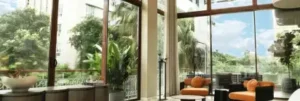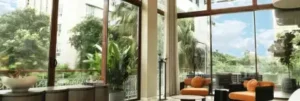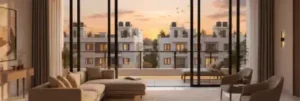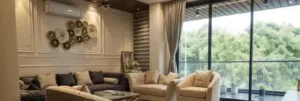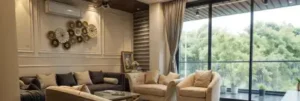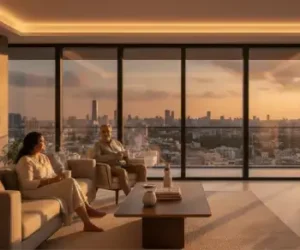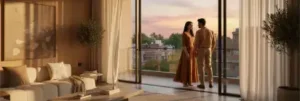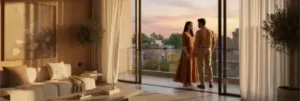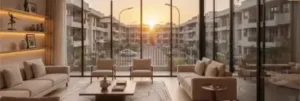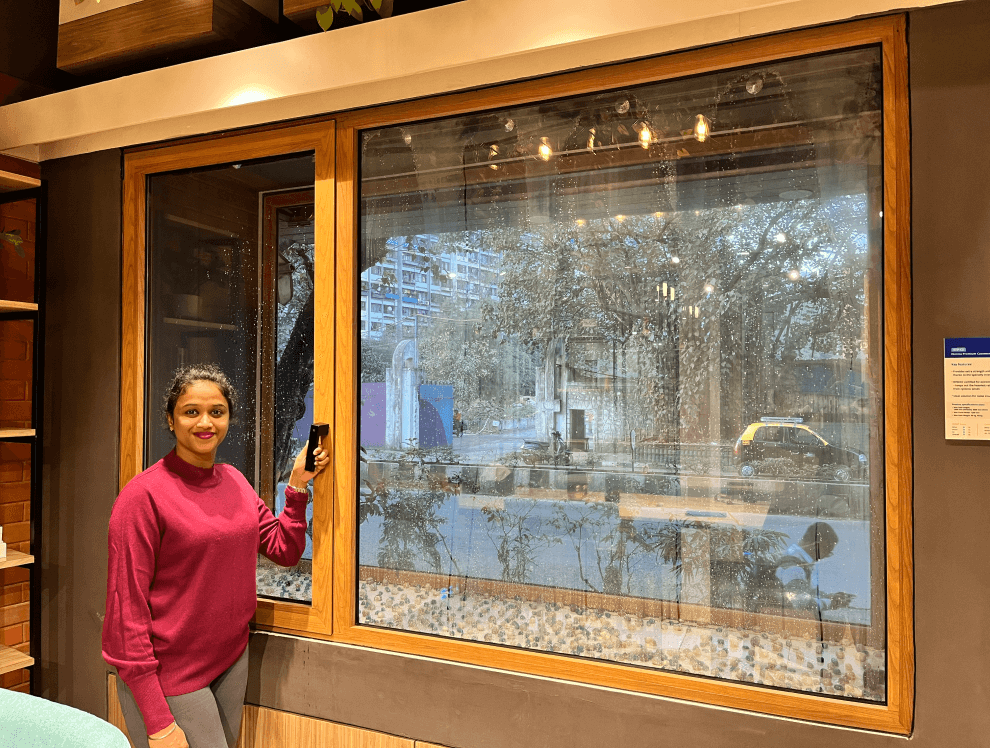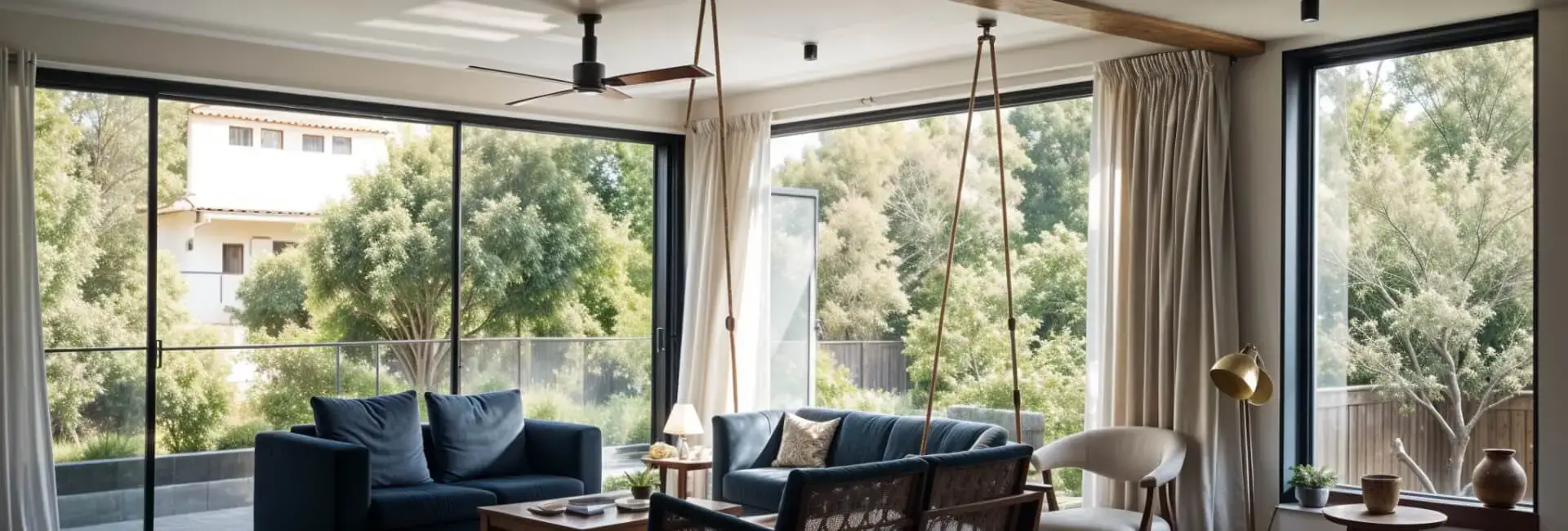
What are Casement Windows? Key Facts, Pros & Cons
Windows have evolved to be more than just an opening to the outside world. They have become an essential part of the narrative and character of your home. Windows are now design statements, functional art pieces that frame the external landscape while enhancing the interior character of a space. Among the array of options available today, casement windows, particularly those with contemporary sensibilities, have reclaimed their prestige. But what exactly are casement windows, and why are they finding their way into modern luxury homes? Let us explore.
What are Casement Windows?
Casement windows are hinged windows that open outward, typically from the side. Unlike sash windows that slide vertically or horizontally, casement windows operate much like doors. A simple crank or handle mechanism allows the window to open wide, providing unobstructed views, ample ventilation, and a unique aesthetic presence.
Historically, casement windows trace back centuries and were often seen in traditional European homes. However, their design has evolved significantly. The contemporary casement windows that we find today boast sleek frames, minimalist aesthetics, and cutting-edge materials, making them ideally suited for modern luxury living.
Key Features of Casement Windows
To appreciate the versatility and sophistication of casement windows, one must consider their fundamental features:
1. Uninterrupted Views
Casement windows are famed for their expansive glass panes. With fewer mullions and sash lines, they offer clear, uninterrupted views, which is an essential feature in homes where the surrounding landscape is as integral to the design as the structure itself.
2. Enhanced Ventilation
These windows open outward at an angle, catching breezes and funnelling fresh air indoors more effectively than many other window types. A sliding casement window variation featuring a blend of side-hinged and gliding movement enhances airflow while accommodating tighter spaces.
3. Tight Seals for Energy Efficiency
When closed, casement windows seal tightly against their frames. This firm compression makes them exceptionally energy-efficient, reducing heat loss and maintaining consistent interior temperatures, especially when designed with superior materials like aluminium.
4. Versatile Design Options
From traditional cottage charm to ultra-modern geometries, casement windows adapt seamlessly. Aluminium casement windows in particular are favoured in bespoke builds for their strength, slim profiles, and durability, without compromising on beauty.
The Pros of Casement Windows
Casement windows are not just about appearances; they bring a multitude of advantages that resonate with both functionality and form:
1. Superior Ventilation
The outward opening allows for full ventilation, particularly when positioned to capture prevailing winds. The angle at which they open can be adjusted to direct airflow exactly where it’s needed, promoting a fresher and healthier indoor environment.
2. Maximised Natural Light
Thanks to their broad panes and minimal framework, casement windows flood interiors with daylight. In high-end interiors, this translates to luminous spaces that shift and shimmer throughout the day, enhancing textures, tones, and materials within.
3. Security
The window’s hook-shaped locks, embedded within the frame, offer a more secure mechanism than traditional latches. When complemented by the strength of aluminium windows, the result is not just beautiful but reassuringly robust.
4. Architectural Harmony
Whether it’s a hillside villa or a penthouse suite, contemporary casement windows integrate with diverse architectural styles. Their clean lines and tailored proportions allow them to either blend in or stand out, depending on the aesthetic intent.
The Cons of Casement Windows
While casement windows offer an array of benefits, understanding their limitations ensures a more informed design choice:
1. Space Considerations
Since these windows open outward, they require clear external space. In compact urban settings or areas with overhanging foliage or walkways, their operation may be restricted unless designed thoughtfully.
2. Weather Exposure
Because of their outward opening, casement windows can be more vulnerable to heavy wind or rain if left open. Advanced design solutions, however, such as inward-sloping sills and reinforced hinges, can mitigate such challenges.
3. Size Restrictions
Larger casement windows can become heavy and may exert stress on their hinges over time. However, with aluminium casement windows, the inherent lightness and strength of the material provide a practical counterbalance, allowing for grandeur in scale without compromise.
Materials Matter: Why Aluminium?
When it comes to luxury and sustainable living, material selection is everything. Timber, while classic, demands maintenance. uPVC, though affordable, lacks the elegance and strength demanded by premium architecture. Enter aluminium—the modern designer’s material of choice.
Aluminium casement windows are revered for their slim profiles, allowing for larger panes of glass and more light. They are corrosion-resistant, low maintenance, and available in a spectrum of finishes, from anodised metallics to deep, matte hues. Beyond aesthetics, aluminium delivers a long-term performance that justifies its presence in high-end construction.
Eternia’s Perspective: Redefining Casement Excellence with Duranium™
At Eternia, we understand that luxury is not merely about appearances. It’s about performance, craftsmanship, and legacy. That’s why our aluminium casement windows and doors are forged with Duranium™, a revolutionary aluminium alloy that is 40% stronger and cyclone-tested. This material is not only stronger and more resilient than conventional aluminium but is also designed to withstand the harshest of Indian climates while maintaining its architectural integrity.
Our contemporary casement windows are precision-engineered for those who seek timeless design, superior security, and unyielding performance. Whether you desire a sweeping vista through a sliding casement window or the charm of a classic side-hinged design, Eternia delivers windows that do more than frame your view—they elevate your entire living experience.
Crafted with finesse and built for life—Eternia aluminium windows and doors are where innovation meets sophistication.
Frequently Asked Questions
Absolutely. With clean lines, expansive glass panels, and minimalist profiles, contemporary casement windows perfectly complement modern architectural styles.
Yes, a sliding casement window provides excellent ventilation while offering a space-saving alternative to outward-opening designs. It combines the airy openness of traditional casement windows with the convenience of a sliding system, making it ideal for compact or high-traffic areas.
Casement windows are among the most energy-efficient window styles. Their design allows them to close tightly against the frame, minimising air leakage.
Certainly, casement windows can be fully tailored in terms of dimensions, frame finishes, glass types, and hardware. Aluminium windows, in particular, offer immense flexibility in colour and texture, ensuring seamless integration with curated interior themes and bespoke design visions.


 +91 97699 40000
+91 97699 40000